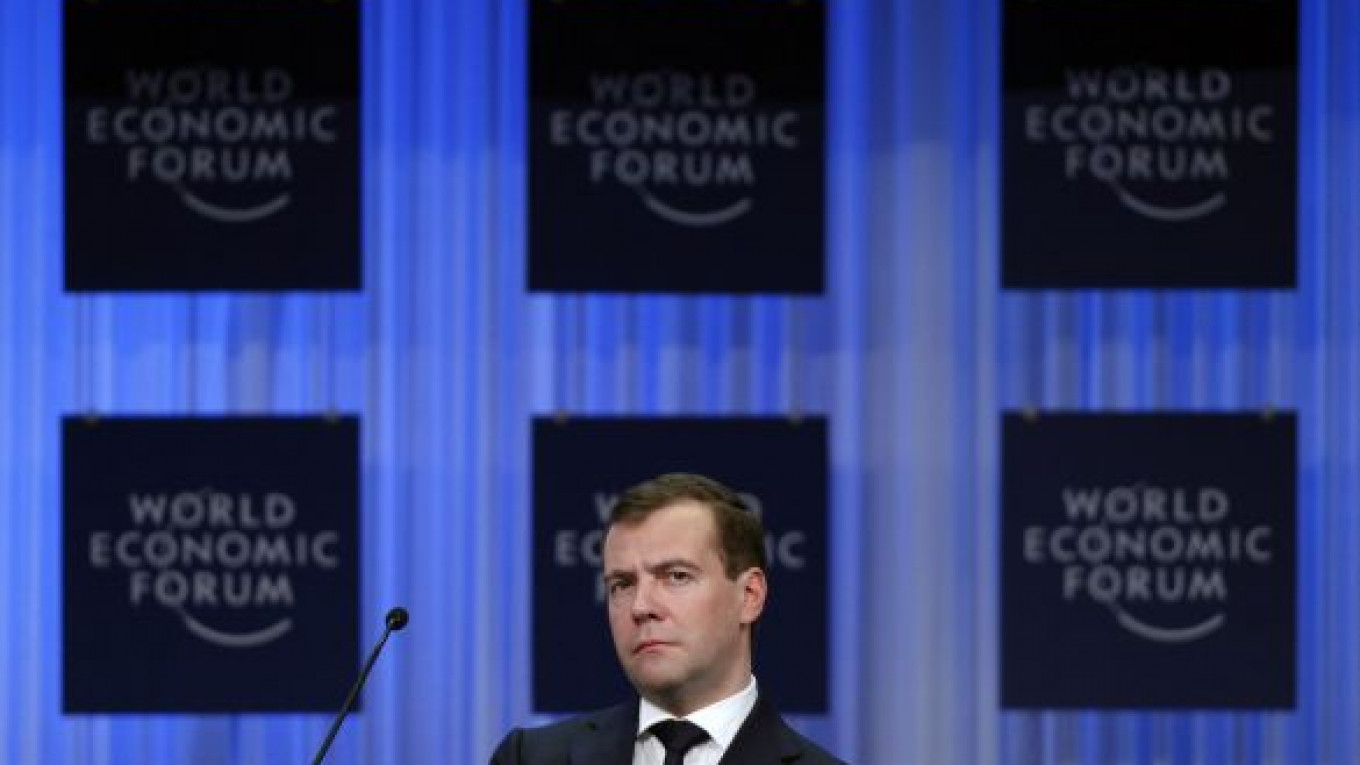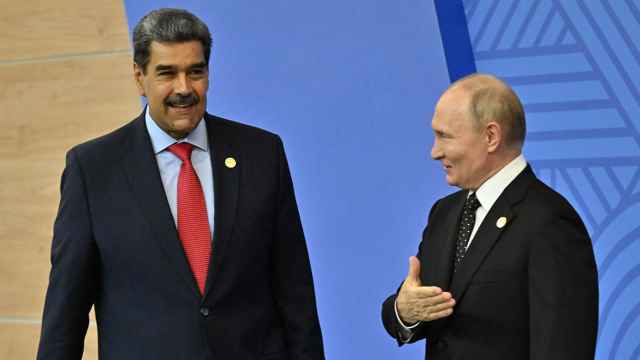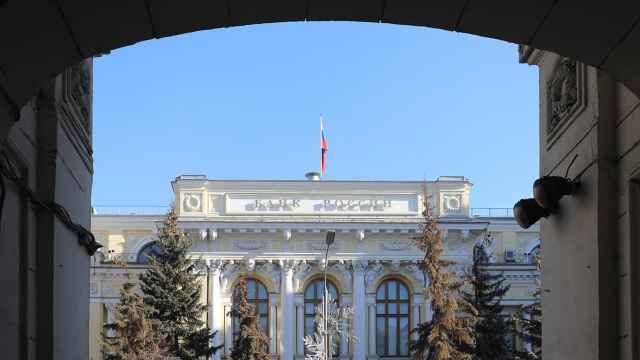Rosneft and U.S. ExxonMobil have joined forces to hunt for and extract oil from the Black Sea floor, as the state-owned oil giant continues to woo foreign firms for their offshore exploration expertise.
In a $1 billion deal signed in Davos on Thursday, the sides will form a joint venture to explore the Tuapse Trough, an 11,200-square-kilometer deepwater offshore area along the Black Sea coast of the Krasnodar region.
“Cooperation with ExxonMobil once again underscores our commitment to the principles of transparency and vision of the Russian energy industry as a part of an integrated global market place,” said Deputy Prime Minister and Rosneft chairman Igor Sechin, who was at the signing.
The venture will be split 50-50 at the exploration stage and 66-33 in Rosneft's favor at the development stage, Reuters reported. ExxonMobil chief executive Rex Tillerson said drilling could cost as much as $1 billion and Exxon would make the initial investment in the project, Bloomberg reported. The first well could be drilled in 2012.
The Tuapse Trough is estimated to hold 7.2 billion barrels of oil equivalent, said Valery Nesterov of Troika Dialog, “easily enough to justify spending a billion dollars on exploration.”
Rosneft's Moscow press service said they could not confirm these details.
“We will build on the successful relationship we have with Rosneft through the Sakhalin-1 project to help meet energy needs in Russia and the wider Black Sea area,” Tillerson said in comments released by ExxonMobil's press service.
In reality, the relationship between the two oil producers in the Pacific has been rocky. Last year, Exxon quarreled with the government over budgeting of Sakhalin-1, and there was speculation it could lose its contract altogether.
And Exxon is not the only company to experience a sudden reversal of fortunes in Russia.
Earlier this month BP and Rosneft struck an $8 billion share swap and agreed to joint exploration of Arctic offshore oil fields. Only last year TNK-BP had nearly lost its license to develop the Kovykta gas field. Symbolically, the deal was sealed by BP chairman Robert Dudley, who had previously been forced out of Russia as chief executive of TNK-BP in 2008.
And in July 2010, Chevron took a 30 percent stake in a joint venture with Rosneft to form to explore the Val Shatsky field, a deepwater field that neighbors the Tuapse Trough in the Black Sea and has particularly difficult geology.
The consensus is that Sechin is sincere — Rosneft is looking to a global future, and it understands it needs Western partners to achieve that goal.
Russia's difficult-to-reach offshore fields constitute one of the “last frontier” areas able to replenish the country’s depleting reserves and play a key role in Rosneft's expansionist ambitions, said Nesterov of Troika Dialog.
“Rosneft is poised to announce a new strategy that implies consistent growth in resource positions and production,” Nesterov said, and this cannot be done without active participation in development of Russian offshore.
To facilitate the strategy shift, Rosneft needs tie-ups with Western oil majors, said Alexander Bespalov, an oil and gas analyst with Alfa Bank. “The idea is to gain access to the necessary technology and share risks and capital expenditures in these risky offshore projects,” Bespalov said.
Rosneft now has operations in the Black Sea and the Pacific, cooperates with Kazakhstan in the Caspian Sea and is about to venture into the Arctic Kara Sea with BP, positioning it for intensive offshore exploration over the next decade.
The payoff for foreign firms is simple, Nesterov said. “It's the oil business, and as Jonathan Black's novel 'Oil' describes it, it is a business where 'dog eats dog.' Business comes before everything.”
Sechin said the deal was proof that the investment climate in Russia had improved, telling Reuters that "we have managed to convince even Exxon of that.”
It is unclear whether Rosneft or the government offered either ExxonMobil or BP any specific assurances about a smoother relationship this time around in order to close the deal. In the oil business, as Nesterov pointed out, any self-respecting risk manager takes government promises with something of a pinch of salt anyway.
“It's lucrative. And if it wasn't, they wouldn't have signed.”
A Message from The Moscow Times:
Dear readers,
We are facing unprecedented challenges. Russia's Prosecutor General's Office has designated The Moscow Times as an "undesirable" organization, criminalizing our work and putting our staff at risk of prosecution. This follows our earlier unjust labeling as a "foreign agent."
These actions are direct attempts to silence independent journalism in Russia. The authorities claim our work "discredits the decisions of the Russian leadership." We see things differently: we strive to provide accurate, unbiased reporting on Russia.
We, the journalists of The Moscow Times, refuse to be silenced. But to continue our work, we need your help.
Your support, no matter how small, makes a world of difference. If you can, please support us monthly starting from just $2. It's quick to set up, and every contribution makes a significant impact.
By supporting The Moscow Times, you're defending open, independent journalism in the face of repression. Thank you for standing with us.
Remind me later.






